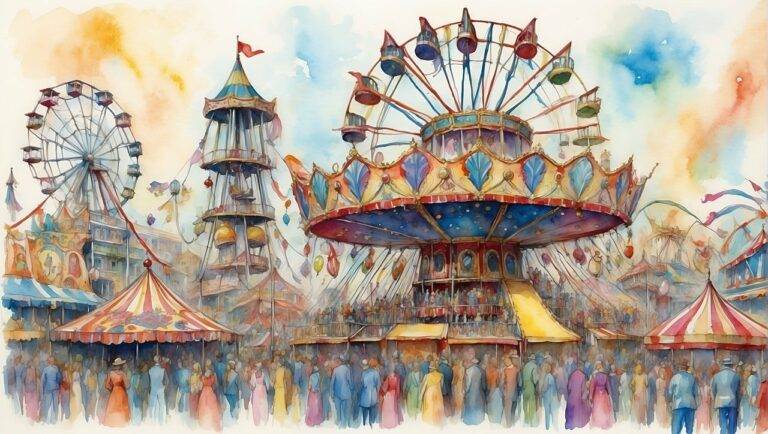Hollywood has no idea what to do about AI
Hollywood has no idea what to do about AI
Key Takeaways
- Structured headings with visual flow
- Category relevance maintained throughout
- Inline images to boost engagement
The Intersection of Hollywood and Artificial Intelligence
As artificial intelligence (AI) continues to advance at a rapid pace, Hollywood finds itself at a crossroads. The entertainment industry, known for its creativity and storytelling, is now faced with the challenge of adapting to new technologies that can potentially alter the very fabric of filmmaking and content creation. From scriptwriting to visual effects, AI’s capabilities are expanding, prompting a mixture of excitement and concern among industry professionals. This article explores the current state of AI in Hollywood, the various perspectives on its impact, and the potential pathways forward.
A New Era of Creativity?
The integration of AI into the entertainment sector is not entirely new; however, its current trajectory raises significant questions. AI tools are being utilized for a variety of tasks, including:
- Script analysis and generation
- Visual effects and CGI enhancements
- Audience analysis and targeted marketing
- Content personalization and recommendation systems
Scriptwriting and AI
One of the most contentious areas is scriptwriting. AI programs now have the capability to analyze successful scripts and generate new ones. While some argue that this could streamline the writing process, others warn that it may lead to homogenized storytelling devoid of human emotion and nuance. The balance between human creativity and machine efficiency remains a topic of heated debate.
Visual Effects and Production
In the realm of visual effects, AI is increasingly being employed to create stunning visuals that were once thought to require extensive manual labor. This technology can save time and reduce costs, but it also raises concerns about job security for artists and technicians. The industry must consider how to integrate these tools without displacing the creative workforce.
Industry Reactions and Concerns
Responses to the rise of AI in Hollywood vary widely among stakeholders, including writers, directors, and producers. Some embrace the potential for innovation, while others express skepticism and caution.
Support for AI Integration
Proponents of AI in entertainment argue that it can enhance creativity rather than replace it. They believe that AI tools can assist writers and directors by providing new insights and ideas, effectively serving as collaborators rather than substitutes. This perspective underscores a belief in the complementary relationship between human creativity and technological advancement.
Concerns Over Job Displacement
Conversely, many professionals in the industry are concerned about the implications of AI on employment. As studios increasingly turn to AI for cost-effective solutions, there is a growing fear that traditional roles may be diminished or eliminated altogether. This anxiety is compounded by the rapid pace of technological change, leaving many unsure of their future in the industry.
Legal and Ethical Considerations
Beyond creative concerns, the rise of AI in Hollywood introduces complex legal and ethical issues. Questions regarding copyright, authorship, and the ownership of AI-generated content are at the forefront of discussions among legal experts and industry leaders. The lack of clear guidelines surrounding these issues presents challenges for content creators and distributors alike.
Copyright and Ownership Issues
One of the primary legal challenges involves determining who owns the rights to content generated by AI. If an AI program writes a script or creates a visual effect, who is the rightful owner? This ambiguity can complicate contracts and licensing agreements, leading to potential disputes in the future.
The Ethical Implications of AI
Ethically, the use of AI in storytelling raises questions about authenticity and representation. As AI systems are trained on existing content, there is a risk that they may perpetuate biases or stereotypes present in the source material. The industry must confront these issues to ensure that AI tools are used responsibly and ethically.
Key Takeaways
- Hollywood is at a critical juncture as it navigates the integration of AI into creative processes.
- AI can enhance production efficiency but raises concerns about job displacement and creative authenticity.
- Legal and ethical challenges remain uncertain, particularly regarding copyright and representation.
Frequently Asked Questions
What are the main uses of AI in Hollywood?
AI is primarily used for script analysis, visual effects, audience analysis, and content personalization. Its applications are expanding, leading to new possibilities in filmmaking.
Are writers and artists at risk of losing their jobs to AI?
There is concern among writers and artists about job displacement due to AI’s efficiency. However, many believe that AI can serve as a tool to complement human creativity rather than replace it.
What legal issues arise with AI-generated content?
Legal issues include questions of copyright and ownership. If an AI generates content, it is unclear who holds the rights, which complicates contracts and intellectual property law.
How can the industry ethically use AI?
The industry must ensure responsible use of AI by addressing biases in training data and striving for authentic representation in storytelling.
What steps are being taken to regulate AI in entertainment?
Discussions among industry leaders, legal experts, and policymakers are ongoing to establish guidelines and regulations regarding the use of AI in entertainment, but no comprehensive framework currently exists.
Conclusion
As Hollywood grapples with the implications of artificial intelligence, the future of the entertainment industry remains uncertain. The potential for innovation is immense, but so are the challenges and ethical considerations that must be addressed. It is crucial for industry stakeholders to engage in open dialogue about the role of AI in creative processes, ensuring that technology serves to enhance rather than diminish the art of storytelling.
Next Steps
To navigate this evolving landscape, industry professionals should stay informed about technological advancements, participate in discussions regarding ethical standards, and advocate for regulations that protect both creativity and employment. Engaging with AI as a collaborative tool may pave the way for a new era of entertainment that honors both human and machine contributions.


